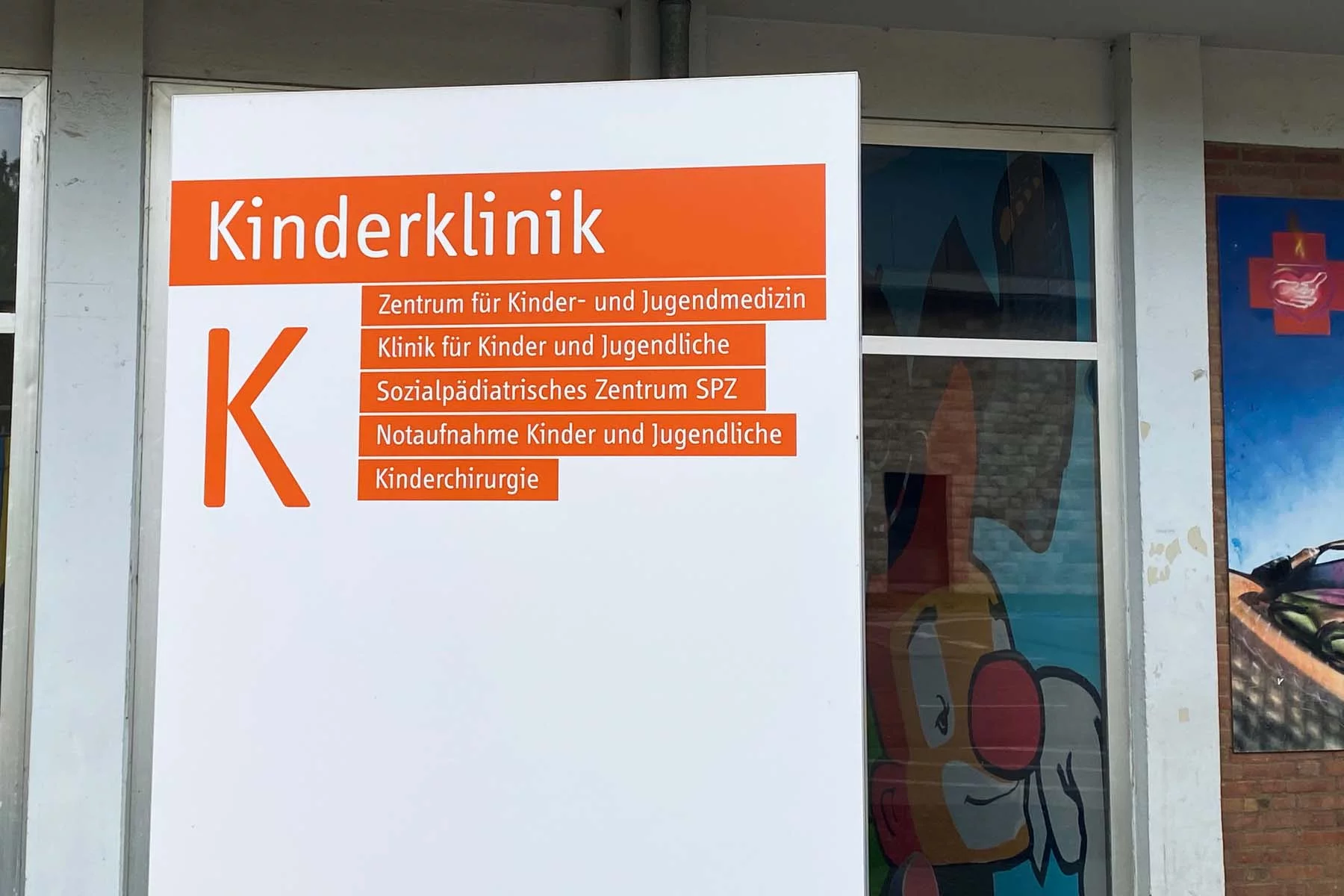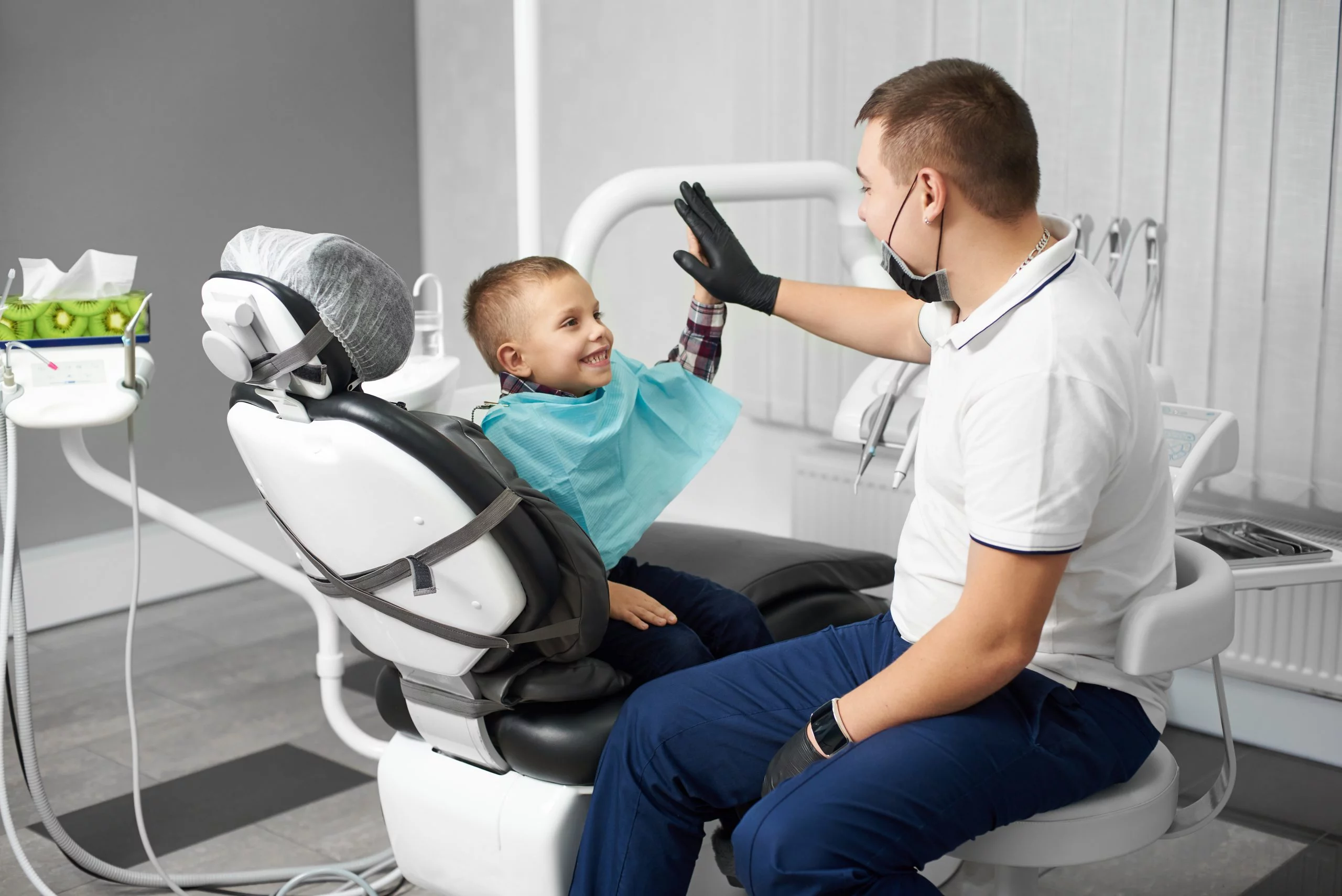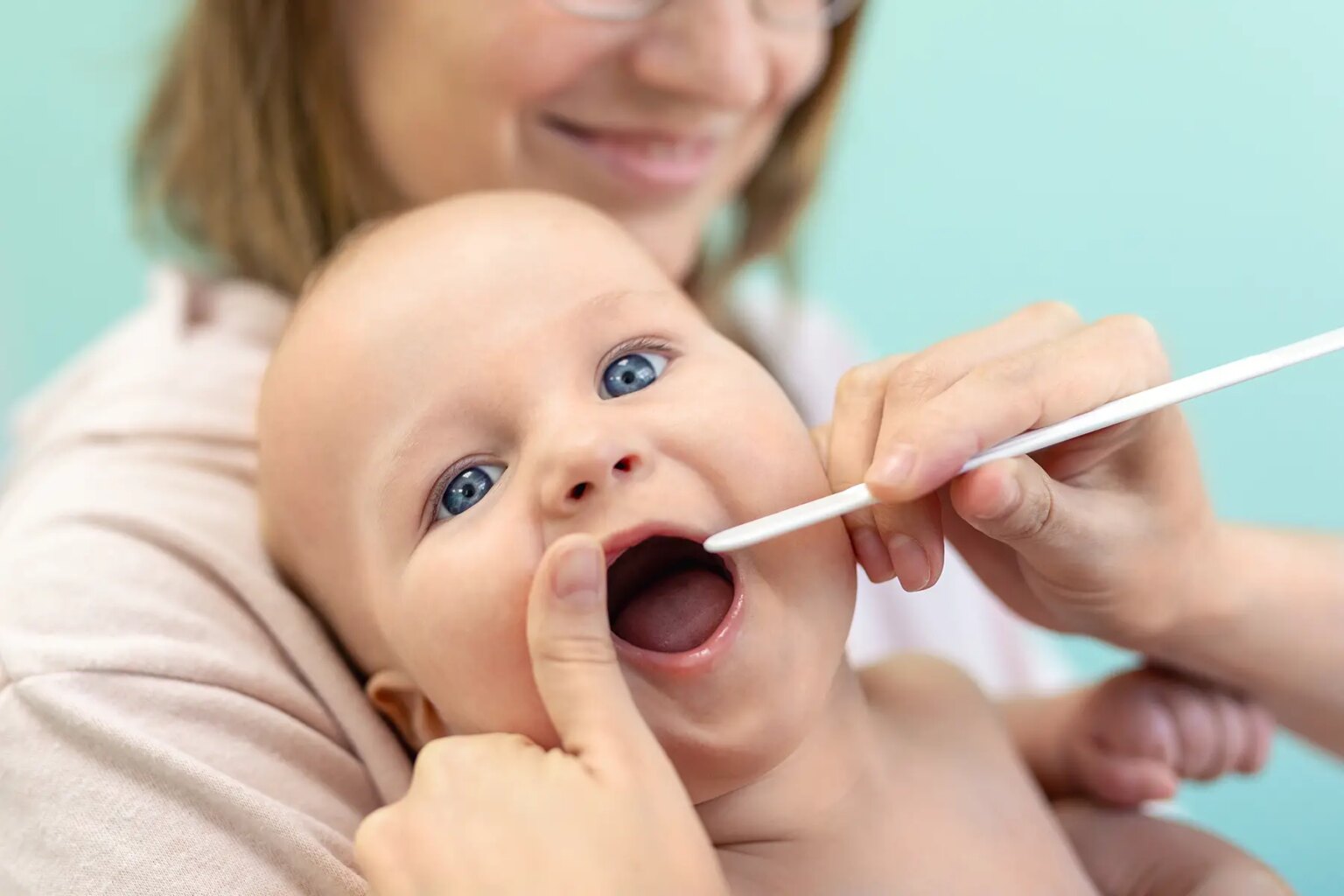When it comes to raising a family in Germany, there are undoubtedly challenges and benefits. On the top of the list will be picking the right school, figuring out childcare, and accessing healthcare. As you start planning your move abroad, it’s a great idea to learn about options for children’s healthcare in Germany.
With this in mind, this insightful guide has everything you need to know about children’s healthcare in Germany, including:
- An overview of children’s healthcare in Germany
- How to access healthcare for your children in Germany
- Taking your child to the pediatrician in Germany
- Taking your child to see a doctor or specialist in Germany
- Children’s hospitals in Germany
- Children’s dental care in Germany
- German mental healthcare for children
- Preventative healthcare programs for children in Germany
- Useful resources
Cigna Global
Want access to the best private medical services in Germany? Speak to the healthcare professionals at Cigna Global today and find a policy that’s right for you. Take advantage of their global network of doctors, specialists, therapists and more with coverage tailor-made for you and your family. If you’re starting a new life in Germany, get peace of mind with Cigna Global.
An overview of children’s healthcare in Germany
In Germany, there are roughly 13 million children and youths, which make up 16% of the population. Nearly 680,000 babies are born each year. Until age 12, children living in urban areas receive care from a pediatrician. Otherwise, many kids are provided with treatment by a general practitioner. Germany has one of the lowest waiting times for doctor’s appointments in Europe. In fact, clinics often have same-day appointments available.

When choosing a physician, parents can pick whomever they want. Furthermore, until kids finish school, all diagnostic and therapeutic care is free of charge and covered by public and private health insurance. Therapeutic children’s healthcare in Germany includes psychotherapy, physiotherapy, speech therapy, and occupational therapy.
How to access healthcare for your children in Germany
In Germany, private and public insurance provide coverage for children. Public insurance is free of charge. However, children whose parents have private insurance require a contract of their own, which you pay for out of pocket. For couples who use the two different insurance systems, kids are insured by the parent with private insurance. If you are both insured by the GKV, your child is covered by family insurance, also known as Familienversicherung. Regardless, your insurer is legally obliged to insure your newborn.
Parents with children older than 12 will be charged for prescription drugs, which cost an average of €9.73. Consequently, this cost can be prohibitive for some families. The German government has a monthly allowance called Kindergeld for low-income single and partnered parents. This is paid out, per child, until they reach the age of 18.
Public healthcare for children in Germany
The German healthcare system has some of the most advanced and high-quality treatments and care in Europe. In fact, its doctors, specialists, and facilities are among the best in the world. Public health insurance, also known as gesetzliche Krankenversicherung or GKV, is available for all residents. For more information, read our complete guide to the German healthcare system.

Public health insurers are called Krankenkassen. After signing up with one, you can fill out a form and add your children as dependents. They will be covered free of charge. Regardless of nationality, you will need a high-quality photo or scan of your children’s birth certificate. Kids younger than 15 do not need to provide a photo ID. If you give birth, your insurer will cover all associated costs. After, you must register your baby and apply for a German birth certificate. Any child born on German soil or to German parents can claim German citizenship if they meet certain conditions.
These are the types of children’s health services available through the public system in Germany:
- General check-ups and subsequent treatment.
- Therapeutic care including psychotherapy, physiotherapy, speech therapy and occupational therapy.
- Vaccinations against Chickenpox, Hepatitis B, Polio, Measles, mumps and rubella (MMR).
- Children’s hospitals offer emergency and outpatient care.
While insurance is compulsory in Germany, there are more than 140,000 people without health insurance. Many of these are self-employed, unemployed, or homeless. Those who have not signed up for the health insurance system only receive treatment if they are suffering from acute illnesses or pain. However, a fund has been proposed to bridge the gap.
Private healthcare for children in Germany
Private health insurance or private Krankenversicherung, often called PKV, is used by 10% of the German population. This small slice includes high-income earners, students, freelancers, and those who are self-employed. It also includes some expats living in the country. If you have private insurance, your child will need their own contract, which you will pay a premium for. Subsequently, any care or treatment will be paid for up front and reimbursed later by the insurer. However, some private insurers offer family packages or discounts plus special offers for kids.
If you are not eligible for state health insurance, you can opt to take out private health insurance from a health insurance company. In Germany, you’ll find a range of local and international insurers, including:
The PVK maintains a full list of private German health insurance companies.
Taking your child to the pediatrician in Germany
In Germany, pediatricians are both general practitioners and specialists. Because of this, you and your child can access these professionals without a referral. During business hours, the first point of contact for outpatient care is through a pediatrician or general practitioner’s office. Of children aged six and under, 90% are seen by a pediatrician. The other 10% are seen by a general practitioner. For kids aged six to 11, this ratio is 65:35 and for those older than 11 it is 30:70.
Children with chronic diseases, psychosocial problems, developmental delays, or disabilities can access one of the 145 social pediatric centers, known as Sozialpaediatrisches Zentrum (SPZ) across the country. All in all, there is roughly one SPZ per 500,000 people. As pediatricians work predominantly during office hours, there is a lack of medical services for children in German villages and small towns. In contrast, parents living in major cities can access emergency services during evenings and weekends.
Use an online directory, such as MedKolleg, to find a pediatrician. The site allows you to search by region, specialty, or name. On the Federal Chamber of Physicians website, a regional search of registered doctors and specialists is available. Meanwhile, Gelbe Seiten, the German Yellow Pages, has a list of doctors. Finally, DocInsider has patient ratings on doctors in Germany.
Routine childhood health checkups in Germany
For children and adolescents, there are thirteen routine clinical examinations. During infancy, there are six examinations while five happen during childhood. Finally, there are two which occur during adolescence. These U Screenings monitor sight, hearing, motor skills, language development, coordination, and overall behavior. Pediatricians mostly carry out these examinations, all of which are paid for by statutory health insurers. Parents receive a medical booklet with the results of these health assessments. This includes administrative data, vaccinations, percentiles, and clinical findings.

For newborns, a special laboratory test screens for inbred metabolism disorders. Furthermore, infants are blood-tested for more than 20 diseases. During the neonatal period, babies are screened for hip dysplasia, which occurs by ultrasound. Before a child enters the education system at age six, there is also an obligatory clinical examination.
Vaccinations for children in Germany
In Germany, vaccinations are voluntary and there is no legal requirement for children to be immunized. However, there has been a resurgence of measles, both domestically and internationally. As a result, German states are considering making the MMR vaccine mandatory. The national immunization schedule, developed by the Ständige Impfkommission, is published once a year in the Epidemiological Bulletin. Children have access to vaccinations against Chickenpox, Hepatitis B, Polio, and MMR.
Taking your child to see a doctor or specialist in Germany
Parents are able to pick a general practitioner of their choice. To register your child, reach out directly to a service provider and set up a consultation. In Germany, children older than 12 usually see a general practitioner. Younger children typically receive care from a pediatrician. General practitioners may lack training in infant care, preventative care, and child-friendly healthcare but can refer you to a specialist if necessary. For more information, read our guide to seeing a doctor in Germany.
Children’s hospitals in Germany
For children who are critically ill and require immediate assistance, Germany’s network of children’s hospitals offers emergency outpatient care. Furthermore, this option is available both prior to and after business hours. There are small emergency clinics (Notfallambulanz) in major cities with a pediatrician on duty who generally works 8-10 hours a day. In the event of an emergency, parents should take their children to the nearest general hospital.

German pediatric hospitals have specialists that provide full diagnostics and treatment in, for example, the following fields:
- Hematology
- Allergology
- Pulmonology
- Gastroenterology
- Cardiology
- Nephrology
- Endocrinology and diabetology
- Psychiatry and psychotherapy
- Neurology and orthopedic
- Neuropediatrics
These are some of the main specialist children’s hospitals in Germany:
- Berlin – Kinderklinik Lindenhof
- Cologne – Kinderkrankenhaus Amsterdamer Straße
- Dresden – Kinderklinik
- Frankfurt am Main – Clementine Kinderhospital
- Giessen – Universitätskinderklinik Giessen
- Hamburg – Altonaer Kinderkrankenhaus
- Hamburg – Katholisches Kinderkrankenhaus Wilhelmstift
- Hannover – Kinderkrankenhaus auf der Bult
- Munich – Kinderklinik an der Lachnerstraße
- Nuremberg – Cnopfsche Kinderklinik
- Stuttgart – Olgahospital
Children’s dental care in Germany
In the first six months of life, infants begin teething. By the age of six, children start losing their baby teeth and get their adult teeth. Kids’ teeth are subject to oral disease and decay. As a result, it’s important for your children to see a dentist for a routine cleaning and check-up.
Overall, dentists will be able to provide your children with the following services:
- Cleanings
- Fluoride treatment
- Diet and nutrition recommendations
- Infant oral examinations
- Counselling on thumb-sucking and pacifier usage
- Assessment and treatment for teeth straightening
- Correction of overbites
- Repair of defects or cavities
- Care for dental injury
- Management of oral disease
- Diagnosis of oral conditions.

While excellent, dentistry in Germany is surprisingly costly. Overall, you will get what you pay for. Most importantly, there is no shortage of dentists, even in rural areas. In any case, WhatClinic has the details of more than 1,400 clinics in the country that offer dentistry. Additionally, the National Association of the Statutory Health Insurance Dentists has a search engine. Overall, it’s best to look for an experienced practitioner with a great reputation.
Regardless of your insurance provider, your child will be covered for routine procedures. This includes dental hygiene and simple fillings. Furthermore, if your kid needs major dental work, the state will only partially cover costs. As a result, private insurers will offer more comprehensive coverage options. Keep an eye on government cutbacks as they could impact your coverage. Make sure to read up on what your premium covers and what doesn’t.
If you’re eager to know more, check out our guide to dentistry in Germany.
German mental healthcare for children
At German mental health hospitals, there are wards with teams of consultants, psychologists, and therapists. Together, these teams will provide specific care and treatment for children and adolescents, whether it’s a mood disorder or an eating disorder. Additionally, these hospitals have emergency and outpatient care. In 2019, there were 48,265 psychotherapists providing services for children and adolescents across Germany.
In the event that your child requires specialized care, a family doctor can provide you with a referral. Alternatively, you can make a consultation with a psychiatrist or psychotherapist directly. Meanwhile, in schools, there are often social workers or psychologists on staff. Consequently, these practitioners will be able to screen children who display symptoms of psychological distress, such as emotional problems or hyperactivity, and refer them to specialized treatment.
Preventative healthcare programs for children in Germany
In Germany, public insurance covers preventive healthcare for children. As a result, your kids will have access to regular dental checkups, general health checkups, basic immunizations, chronic disease checkups, and cancer screenings.
Additionally, The National Action Plan has programs that focus on disease prevention and health promotion. These programs take place at daycare centers, leisure facilities, and in schools. To find out more, reach out to spaces in your area and learn about what is available to your family and how to enroll. With this in mind, here are some examples:
- FIT KID, a healthy eating campaign for daycare facilities, integrates nutrition education and optimum catering into curriculum.
- The Kinderleicht Regions, which includes 24 pilot projects across Germany, develops local, regional, and social space initiatives to advocate for a healthy diet and sufficient physical activity.
- On the way to Doesmegood, a campaign aimed at kids aged 5-11, is creating nationwide structures to promote health in children’s living environments. The project takes an integrated approach to children’s health in the areas of diet, physical activity, and stress regulation.
- Licence to eat better is a nutrition education scheme for grade three students. The program imparts daily skills and basic knowledge about the origin, processing and preparation of foods and a healthy diet.
Useful resources
- The Federal Ministry of Health: information about health and long-term care insurance in Germany (in English).
- Joint Federal Committee: the regulating and decision-making body on German healthcare and health insurance.
- KZBV: National Association of Statutory Health Insurance Dentists.
- Aponet: find a local pharmacist.
- Unabhängige Patientenberatung Deutschland (UPD): independent health advice for patients, in German, Russian and Turkish.
- German kids and youth hotline: 0800 111 03 33
- Pediatrics in Berlin
- German Network for Mental Health: directory of mental health professions available online.
- Therapy Route: a directory of psychologists in Germany.
- KV Berlin: a directory of doctors and psychotherapists who accept public health insurance.
- Doctena: a directory allowing you to search for doctors and therapists by language.
- Coalition for Mental Health: an alliance of 125 member organizations working together to de-stigmatise mental illness.
- SOS Children’s Villages: a non-governmental and non-denominational organization providing alternative care to children.
- GAIMH: The German Association for Infant Mental Health advocates for the promotion of mental health in early childhood.








